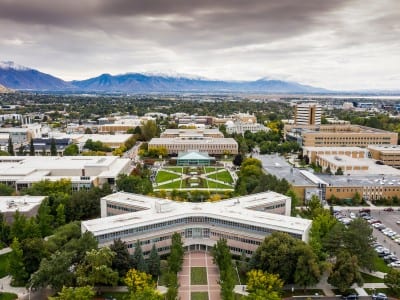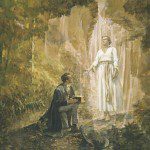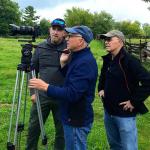
I love Brigham Young University. I believe in it. I never wanted to teach anywhere else. I was deeply influenced by President Spencer W. Kimball’s memorable 1975 address, “The Second Century of Brigham Young University.” It still feels strange to me to be retired from BYU and to be, now, only a (small and insignificant) part of its history, rapidly receding into the rear-view mirror.
I also worry about the University. So I was very interested in this article by BYU’s still quite new president, C. Shane Reese. I liked what he had to say: “Perspective: Becoming BYU: As former President Spencer W. Kimball said, the ‘destiny of this unique university” is to become an “educational Everest””
For this blog entry, I want to focus on one particular passage from President Reese’s article:
My immediate predecessor, President Kevin J Worthen, frequently observed that “The most important decisions that will be made in my tenure as president at BYU are the people we hire.” This starts with our faculty. Faculty hiring decisions are paramount because these are the people to whom our students look for examples and mentors who successfully integrate the life of the mind and the life of faith.
I couldn’t possibly agree with that more than I do. So I think that I’ll share a story:
When I first arrived in Utah Valley to assume a position on the BYU faculty, my father and one of my uncles came with the moving truck, driving it and helping with the move on both ends. And my former missionary companion Stephen D. Ricks, who was already teaching at BYU, kindly came over to help unload the truck.
Stephen brought with him a faculty colleague whom I had not met before, who very generously gave the better part of his day unloading and carrying boxes — including many extremely heavy boxes of books — and helping to position things in our temporary Provo lodgings. (Owing to the generosity of both of our sets of parents, and to the help of an excellent graduate school fellowship and the kind financial help of my brother through graduate studies, we were immediately in a position to begin building our house.). That colleague rapidly became a good friend. I liked him very, very much. He was kind and sincere, a model colleague, highly intelligent, a fine scholar, and a dedicated teacher.
Unfortunately, I also figured out within the first hour of our moving day together that he was no longer even remotely an orthodox member of the Church of Jesus Christ of Latter-day Saints, despite being sincerely religious in his own personal way. He had undergone a massive religious transformation somewhere between his mission and the completion of his graduate studies.
I was, frankly, astonished that he was teaching at BYU, particularly in an area that had strong ties with Latter-day Saint scriptural texts, and I was amazed that nobody else seemed to have noticed his unorthodox views.
However, they soon did. Although I don’t for a moment think that he deliberately set out to destroy testimonies — I think he would have said at that point that he himself had one — we began to hear from students of his who were troubled by things he was saying, and even from one couple who altogether renounced their faith.
Still, as I say, we were friends. I liked him very much. We traveled to conferences together, he had me proofread and critique a couple of his academic article manuscripts, our offices were nearly adjacent to each other, we interacted almost every day, and so on and so forth.
One day, we were walking back to our offices from a devotional assembly in the Marriott Center. I was trying to understand his theological position — candidly, I was struggling to understand that a person with his opinions could be, as I considered him to be, admirably honest and yet continue to be fully in both the Church and the University. Knowing that he was active in the Church and that he held a valid temple recommend, I asked him directly how he was able to get past the interview question about sustaining the president of the Church as a prophet, seer, and revelator. “What,” I asked him, “does the term prophet mean to you?”
“A prophet,” he replied, “is someone who stands in a particular relationship to his community.”
“So” — I pursued the point — “Muhammad was unquestionably a prophet. Right?” (I asked because this is a matter about which I myself am often asked, and because my own response to the question is rather tentative.)
“Yes,” he answered. “Absolutely.”
“And what,” I asked, “about Jim Jones? Was he a prophet?”
“Yes. In my understanding of the word, he definitely was.”
“But,” I replied, “I really don’t think that, when your bishop and a member of your stake presidency ask you that question, they’re using a ‘religious studies’ or sociological definition of the term prophet. In the common Latter-day Saint understanding of that word, a prophet is someone who stands in a certain relationship to God. Whether or not he has followers or a ‘community’ is very much a secondary matter.”
I was reminded of children and others who, when bearing public testimony, occasionally declare something like “I know that President Nelson is the President of the Church.” I realize, of course, what they’re intending to say. Strictly speaking, though, nobody really doubts that Russell M. Nelson is the President of the Church. It’s a wholly uncontroversial statement and a wholly non-religious one, easily affirmed, should the occasion arise, by Pope Francis, Richard Dawkins, and the Archbishop of Canterbury, and, for that matter, by the most bigoted mom-‘n-pop anti-Mormon ministry out there in the fever swamps.
Again, I don’t think that my friend was consciously trying to deceive his ecclesiastical leaders by equivocating. Maybe he was — but, if you had known him as I then did, you would have been very reluctant to regard him as disingenuous. He was as far from disingenuousness as anybody I knew. Still, it was clear to me that he and those interviewing him for admission to the temple, and probably in his ecclesiastical hiring interview as well, were speaking different languages.
So, without wanting to advocate some sort of churchly McCarthyism, I found myself wishing that such interviews, in such cases, were more nuanced and, in a sense, more probing.
Incidentally, my friend was still at that stage of his BYU career (as I too was, when I came on) in which he was employed via renewable annual contracts. He didn’t yet have what BYU calls “continuing faculty status” (essentially the equivalent of what other schools call “tenure”). Accordingly, a couple of years later, when his problematic views became impossible to ignore, he wasn’t fired. Rather, his BYU contract was simply not renewed for the next academic year. Happily, he was given generous advance warning and he definitely landed on his feet thereafter, academically speaking.
Incidentally, the case drew some coverage in the local press, and the received story was that, once again, the repressive BYU administration had cracked down on academic freedom. This story was quite inaccurate, though. Concerned faculty colleagues across campus who worked in the same general field and with the same small group of students had begun to raise the issue with University administrators, who nevertheless continually failed for month after month to pay attention or take action.
I still remember the day that my friend called to tell me that the University would not be renewing his contract. I immediately called another friend, in a different college, who had pretty much spearheaded the effort to get University administrators to act. I’ll never forget his first reaction when I gave him the news. It wasn’t triumphant. It wasn’t a victorious war whoop. “This is so sad,” he said.
In any case, I absolutely concur with President Worthen and President Reese that the hundreds of decisions made in connection with the hiring of faculty are fundamental to the nature of Brigham Young University and that making them correctly is essential to the University’s success.

As a result of reading President Russell M. Nelson’s recent book, Heart of the Matter, I’ve resolved to keep a “gratitude journal.” Sometimes, what I write will be very private. But, not uncommonly, I will share entries from it here.
Today, I’m grateful that, starting quite a few years ago, my wife and I have joined with neighbors and former neighbors for dinner at some chosen restaurant followed by a play at the Hale Centre Theatre, which is now located in Sandy. Even with those friends who still reside within our Church ward, I, at least, seldom otherwise have the opportunity to spend much unstructured time with people that we’ve known for many years. (The women are, on the whole, better at this than the men are.) Last night, for example, we gathered for food and for good conversation and then took in Elf: The Musical. I enjoyed the food and the conversation.













